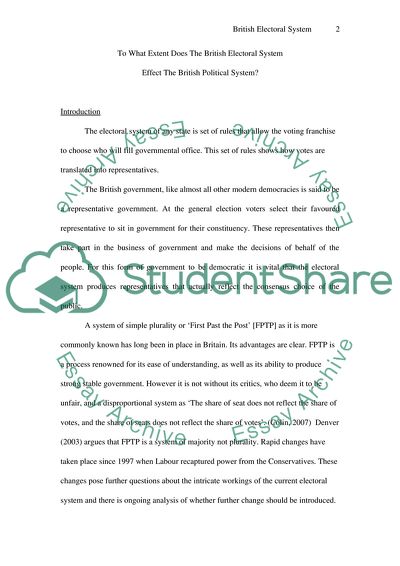Cite this document
(The British Electoral System Case Study Example | Topics and Well Written Essays - 2250 words, n.d.)
The British Electoral System Case Study Example | Topics and Well Written Essays - 2250 words. Retrieved from https://studentshare.org/politics/1710708-in-what-ways-and-to-what-extent-does-the-british-electoral-system-effect-the-british-political-system
The British Electoral System Case Study Example | Topics and Well Written Essays - 2250 words. Retrieved from https://studentshare.org/politics/1710708-in-what-ways-and-to-what-extent-does-the-british-electoral-system-effect-the-british-political-system
(The British Electoral System Case Study Example | Topics and Well Written Essays - 2250 Words)
The British Electoral System Case Study Example | Topics and Well Written Essays - 2250 Words. https://studentshare.org/politics/1710708-in-what-ways-and-to-what-extent-does-the-british-electoral-system-effect-the-british-political-system.
The British Electoral System Case Study Example | Topics and Well Written Essays - 2250 Words. https://studentshare.org/politics/1710708-in-what-ways-and-to-what-extent-does-the-british-electoral-system-effect-the-british-political-system.
“The British Electoral System Case Study Example | Topics and Well Written Essays - 2250 Words”. https://studentshare.org/politics/1710708-in-what-ways-and-to-what-extent-does-the-british-electoral-system-effect-the-british-political-system.


